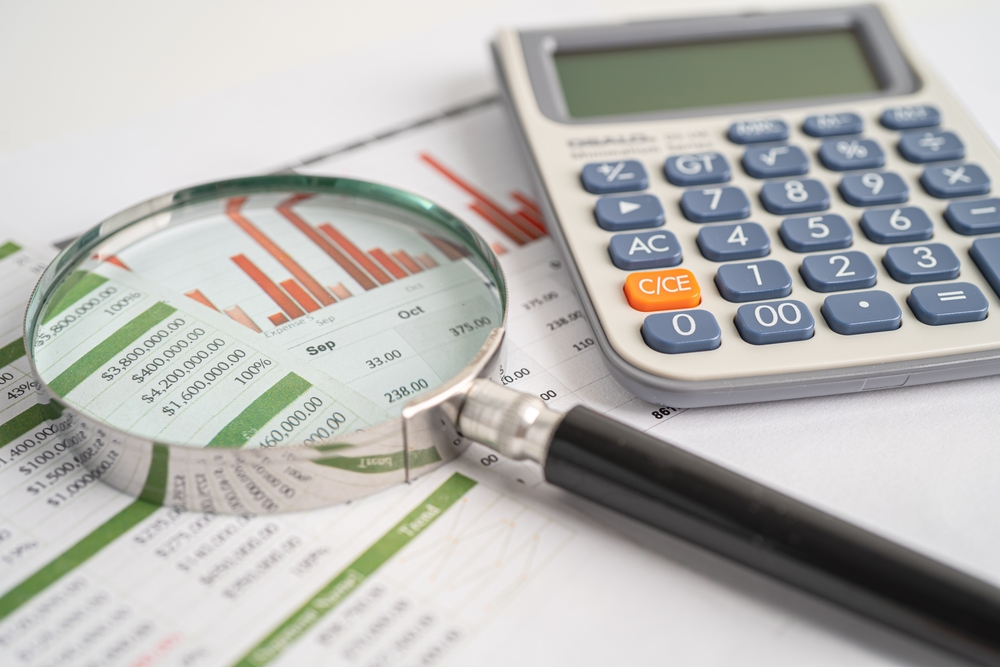What is a Forensic Accounting Expert
Forensic accounting experts combine accounting, data analysis and investigation skills to uncover unusual or noteworthy patterns hidden in accounting histories. There are several scenarios where forensic accounting can provide critical information, including:
- Litigation support
- Fraud detection and investigations
- Financial statement reviews
- Asset tracing recovery cases
- Damage calculations
- Due diligence and business valuations
In summary, if a case calls for a deep dive into financial accounts, then forensic accounting experts can provide needed support. This is particularly true if assets are likely hidden or if unauthorized account activity is suspected.


What Services Do Forensic Accounting Experts Provide?
Forensic accounting experts perform a range of accounting, data analysis and investigation services to develop a full picture of how certain accounts are being utilized. Those services include:
- Charting accounts and cash flow – Forensic accounting experts can review all of your organization’s accounts and chart them to determine who has access and to organize transactions for rapid review. With a chart of accounts, forensic accounting experts can run deeper trend or variance reports to uncover unusual activity.
During cash flow analysis, forensic accounting teams can spot imbalances in outflows vs. inflows, reconcile bank statements, identify the source and application of all funds, and determine when unusual accounting tricks (like sky-high inventory numbers) are concealing potential fraud. - Financial data and transaction analysis – Forensic accounting experts can source financial data from a diverse set of sources, including bank statements, credit card histories, spreadsheets and more. This information is then passed through several types of data analysis to spot unusual activity patterns. For example, forensic accounting experts can perform distribution analysis like Benford’s Law to see if digit-frequency distributions are normal. Trends and transaction timing can also be analyzed for odd patterns, like spikes or dips in established trends.
- Cataloguing and presenting evidence – Forensic accounting experts operate within the bounds of investigative law to ensure all evidence can be cleanly gathered and presented to the court. This evidence can be delivered through expert testimony, visualized for the court, or presented to legal teams to prepare them for court presentation.
- Calculating financial damages – Forensic accounting services can be deployed to assess damages in the wake of fraud, a breach of contract or another adverse accounting-related event. When calculating damages, forensic accounting professionals can identify the period during which damages occurred, and what those damages likely cost the organization, using trend analysis and comparing it to a benchmark of the company’s performance, had it not been affected.
- Charting accounts and cash flow – Forensic accounting experts can review all of your organization’s accounts and chart them to determine who has access and to organize transactions for rapid review. With a chart of accounts, forensic accounting experts can run deeper trend or variance reports to uncover unusual activity.
There are numerous scenarios, legal and otherwise, where forensic accounting services can support the client’s objectives. Those scenarios include:
- Fraud investigation and other criminal cases – Forensic accounting is a primary fraud detection tool and many methods are purpose-designed to detect it. Before the proper analysis even begins, a forensic accounting expert can review the organization’s fraud controls and identify high-risk failure points.
During accounting and data analysis, forensic accounting professionals can uncover unusual trends, figures or activity that point to fraud. And with their investigation capabilities, forensic accounting experts can efficiently gather evidence to support any conclusions derived during fraud analysis. - Breach of contract cases – Breach of contract cases typically involve economic damages and often include hidden assets or accounting tricks. Forensic accounting experts can perform damage calculations and determine when those damages likely occurred. If your organization requires compensation after a partner or vendor breached a contract, forensic accounting experts can develop the details.
- Financial sheet analysis – Forensic accounting professionals can review your organization’s accounting structure and confirm whether the top line numbers on your financial sheets line up with account activity. They can identify discrepancies in the numbers and uncover potential red flags.
- Marriage dissolution cases – Marriage dissolution cases may involve hidden assets, as either party may attempt to conceal wealth prior to property division. A forensic accounting expert can trace assets via financial data analysis and record/database searches.
- Business valuations and due diligence – During a merger and acquisition, a bankruptcy case, or when liquidating assets, forensic accounting experts can perform a deep analysis and verify whether the company’s own valuation numbers align with the financial information. If there are any concerns in the data, forensic accounting teams can report their findings and guide better business-related decisions.
- Bankruptcy cases – During bankruptcy cases, there is always the potential for fraud. The company’s assets also need to be properly valued for liquidation purposes. Forensic accounting experts can act on behalf of the court or the company declaring bankruptcy to assess what the company owns (and what it is worth).
- Fraud investigation and other criminal cases – Forensic accounting is a primary fraud detection tool and many methods are purpose-designed to detect it. Before the proper analysis even begins, a forensic accounting expert can review the organization’s fraud controls and identify high-risk failure points.
If you’re involved in litigation (or represent a party who is), then forensic accounting services may be a valuable litigation support tool for your case. If so, then your forensic accounting expert should provide the following:
- Experience in supporting high-stakes litigation – Forensic accounting professionals can work on a surprising variety of cases, from high profile criminal cases to divorce proceedings. Businesses also partner with forensic accountants to assess internal controls and assist with building out better accounting practices.
There are a variety of ways to gather experience as a forensic accounting professional, and your forensic accounting team should have experience that lines up with your litigation support or accounting needs.
- Organization skills and professionalism – Investigation and extensive data analysis are major parts of the forensic accounting process. Both require on-point organization skills and a sense of professionalism. They should have proven processes in place to efficiently comb through a deep roster of accounts. They should know what the relevant laws are regarding privacy and evidence gathering. In short, they should be able to do their job without damaging the case’s integrity.
- Communication skills – Eventually, your forensic accounting expert will need to report their findings, either to the court or to your decision makers. They may need to deliver expert testimony to the court. If they can do so clearly and convincingly, they can be a valuable member of your litigation support team.
Forensic accounting teams require a mix of skills, including accounting practices, data analysis, investigation, interviewing, report development and others. As such, it often takes an entire team to manage a forensic accounting project. If you have the need for a forensic accounting expert, reach out to a reputable company for a consultation.

